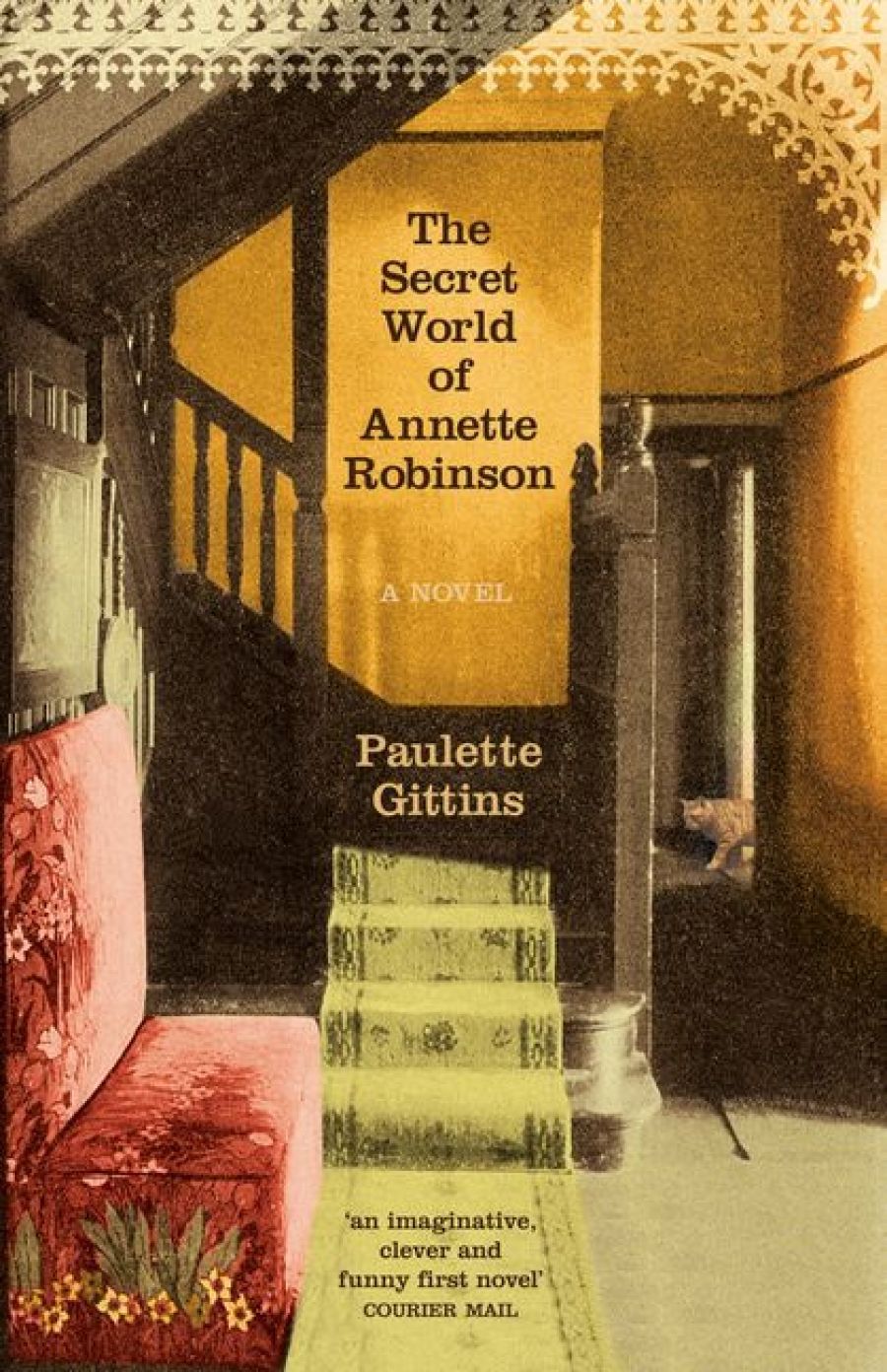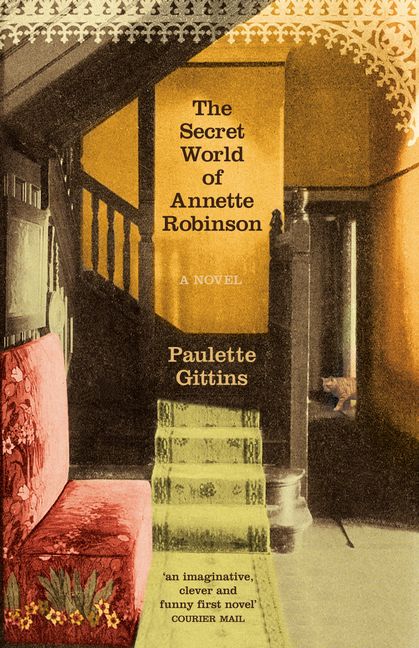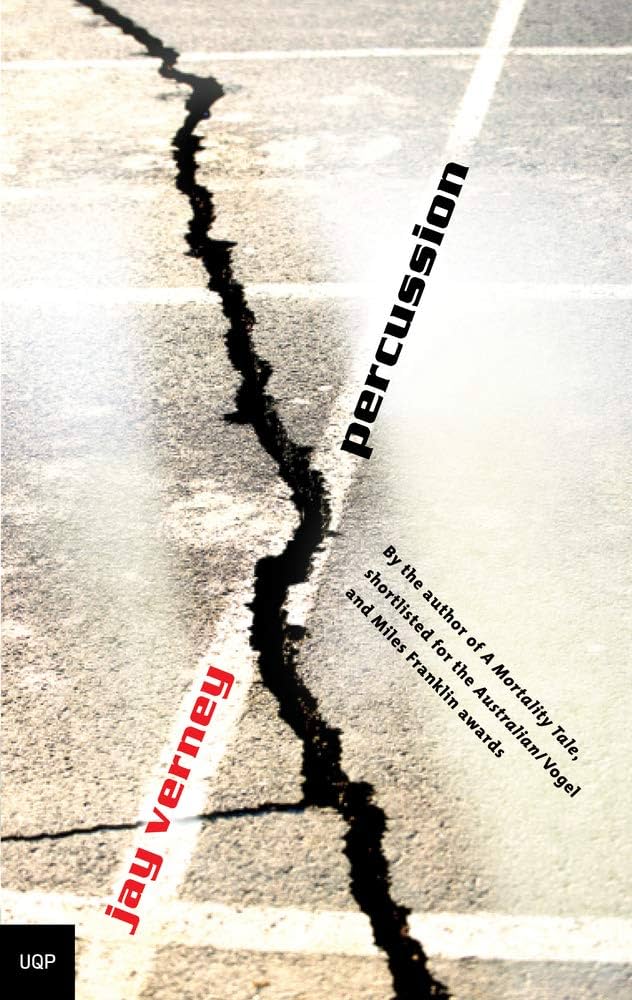
- Free Article: No
- Contents Category: Reviews
- Review Article: Yes
- Online Only: No
- Custom Highlight Text:
Jay Verney’s voice is not unlike Gillian Mears’s – rich, confident and brimming with adroit asides. Verney frequently stops to smell the roses, and dig around the compost. She observes the variations of a landscape, the behaviour of her characters, the nature of an institution. Here she is on a McDonald’s restaurant in Palm Springs: ‘It was America in metaphor, though without the crazed gunman to add that final touch of piquant authenticity.’
- Book 1 Title: The Secret World of Annette Robinson
- Book 1 Biblio: HarperCollins, $29.95 pb, 375 pp
- Book 1 Cover Small (400 x 600):

- Book 1 Cover (800 x 1200):

- Book 2 Title: Percussion
- Book 2 Biblio: University of Queensland Press, $22.95 pb, 326 pp
- Book 2 Cover Small (400 x 600):

- Book 2 Cover (800 x 1200):

The narrator in Percussion is Brian’s daughter, 35-year-old Anna, who has recently lost her job in the public service and her general direction. Anna is gay and madly in love with Carmen, but Anna has yet to decide if she will move in with Carmen and play house. While Anna is between jobs, her mother is between husbands – Brian’s drinking is making their marriage almost redundant – and Anna’s grandmother Veronica is, as she tells Anna, floating. In her seventies, she finally agrees to attend a reunion of friends who are living in America. So Anna and Maggie go with Veronica on an American idyll and observe some of Veronica’s old friends as they tenaciously cling to life. Morty, whose lungs are shot, is a particularly grisly sight. Observing Morty’s breathing machine and the miles of tubing that run through his house, Maggie hisses: ‘The sooner he stops struggling and makes a dignified exit, the better.’
While the women are absorbing as much of America’s culture as they can safely consume, the family back home is experiencing a run of sagas. Anna’s sister Julia is staying at the pub for the summer holidays with her husband Martin and son Errol. Martin chooses their visit to announce that their marriage is finally over, and Errol promptly steals a neighbour’s car. Reg the yardman has moved into one of the pub rooms and makes himself as indispensable as Uriah Heep as he picks up and delivers runaway children, then quietly pours himself another beer.
When Julia is talking to the local policeman about Errol, he refers to her by her married name. She corrects his mistake: ‘“Maher,” said Julie, sounding to herself like a linguistically short-changed sheep.’ On finding her father passed out and curled up on the back verandah, Anna says: ‘He looked like a large, well-dressed foetus.’ Verney’s humour brings a certain lurid, visual richness to her prose.
Verney’s first novel, A Mortality Tale (1994), was shortlisted for both the Vogel and the Miles Franklin Awards. While that novel was concerned with its protagonist’s moral conundrum, Percussion is about our fragile grip on the world. Brian is drinking himself to death, Veronica and her friends are ageing, and the death of one of the characters sends shivers through mortal spines. As a result, Anna is compelled to focus on the business of living and loving.
While Verney’s forte is her humour, Paulette Gittins’s first novel is distinguished by its rhapsodic descriptions. A warning: if you’re prone to skip bits when reading a novel, be careful, since Gittins sometimes slips rather important plot points in among the flurry of metaphors.
Set in Kings Cross in the 1950s, the story is told through the eyes of a little girl, Annette Robinson, and centres on her crowded house in Murray Street, which bursts with family and boarders. While Annette is often fearful of her world – both its shadows and the real censure of the adults – she is irrepressibly curious. She can’t help but explore the boundaries of her childhood, and punishment is a daily occurrence. The 1950s were times when children were disciplined with a backhander, a whack and a crack, but Annette’s father crosses the line. He dominates this novel as powerfully as Christina Stead’s Sam Pollit.
The father is a teacher, and Annette and her sister have to be extra quiet whenever he is at home, because he is writing a novel. ‘Daddy’ has a ferocious temper: he slams his fist on the table which bounces the cutlery, roars his displeasure, and beats Annette and her sister with anything that comes to hand. One time when Annette is sadly examining her battered body in the mirror, her mother sees the bruises and says, somewhat ambivalently, ‘Disgraceful’. A disgrace? Because her child was so naughty that her father had to beat her black and blue? Annette’s mother is too consumed by drudgery and vicious rows with her bad-tempered, unfaithful husband to give her daughters any tenderness.
Annette has keen hearing; smells are potent; lights are bright. Her world is Robin Hood on the telly, the Jacky box for the mission money, her pretty bluebird brooch and Mrs Murphy, her cat. Gittens uses this world as a means of taking us into the heart and mind of a child of those times. She uses an adult voice that is deeply sympathetic to the child. Here is Annette on her first day at school: ‘I look up at the nun, stick my top teeth out and down and over my bottom lip, the all-purpose contrite face, and adopt the ready-to-weep look that shows the serious approach.’ Annette’s simpering is a vital weapon in the dirty war between herself and the adults.
Underneath the details of Annette’s daily life and in the corners of her dreams, there lies a mystery story. Annette sometimes sees the ghost of a lady standing at the top of the stairs. Her aunt Julie has gone missing and nobody will talk about it. And then there is the mysterious room at the top of the house that is always kept locked. The adults may hurt their children, but they also try to protect them.
At the start of Percussion, Anna reflects on her boring demographic status. She decides that she was born too late for the boom and too soon for the bust. On the other hand, given the grimmer aspects of The Secret World of Annette Robinson – the towering rages of mothers, fathers and nuns, the fear of hell and bombs dropped by communists – Anna and her generation could give thanks for a boring childhood.


Comments powered by CComment